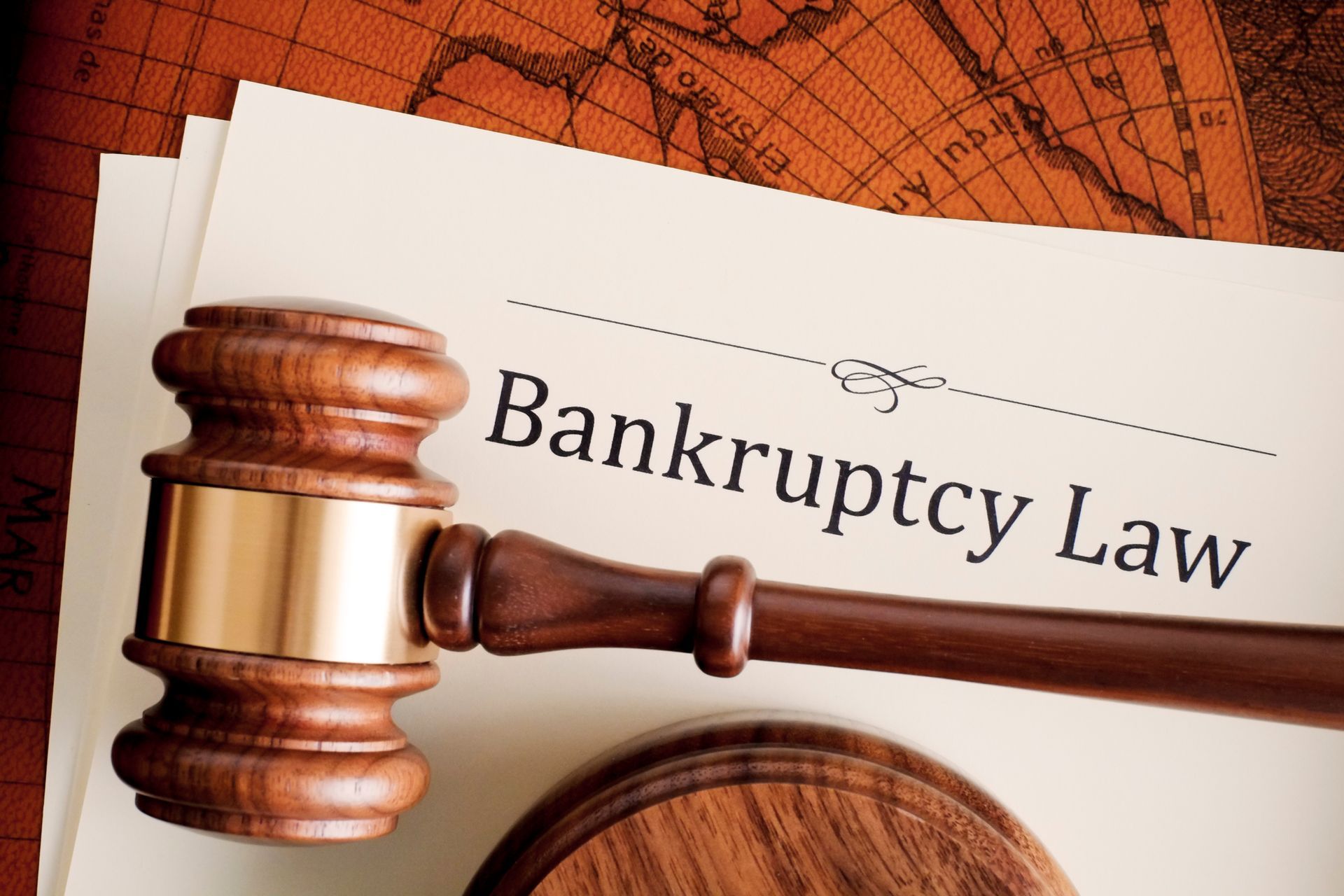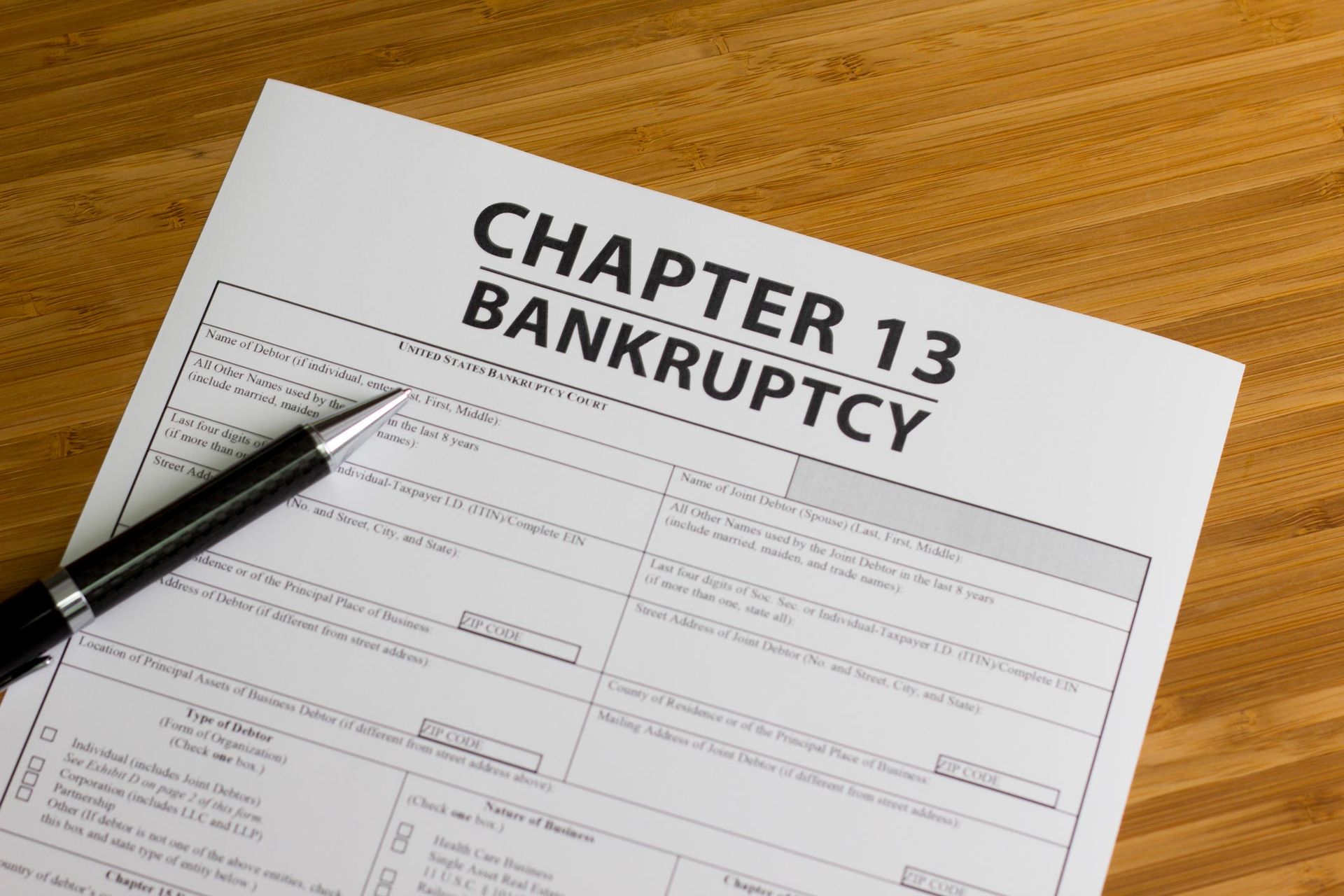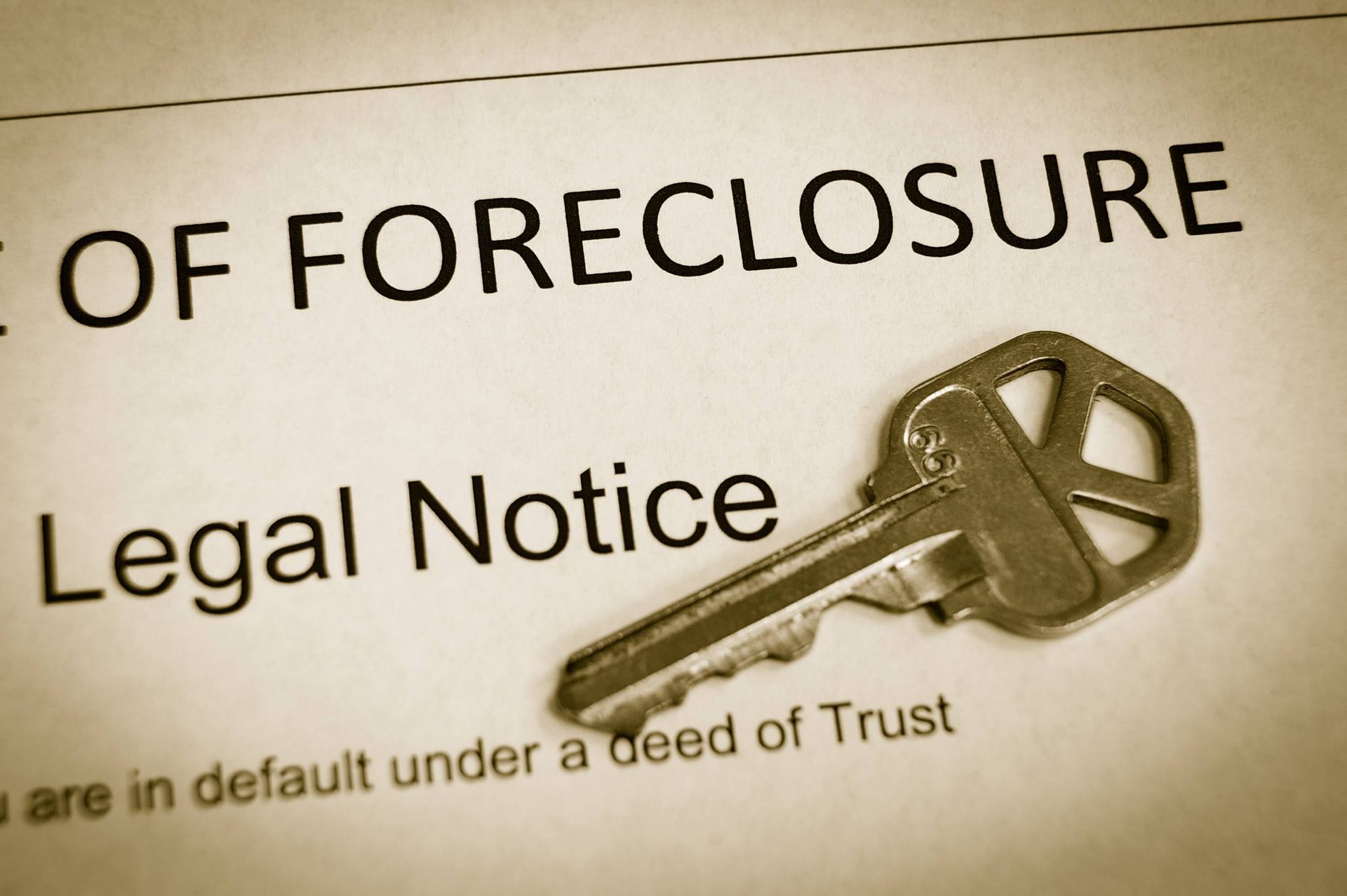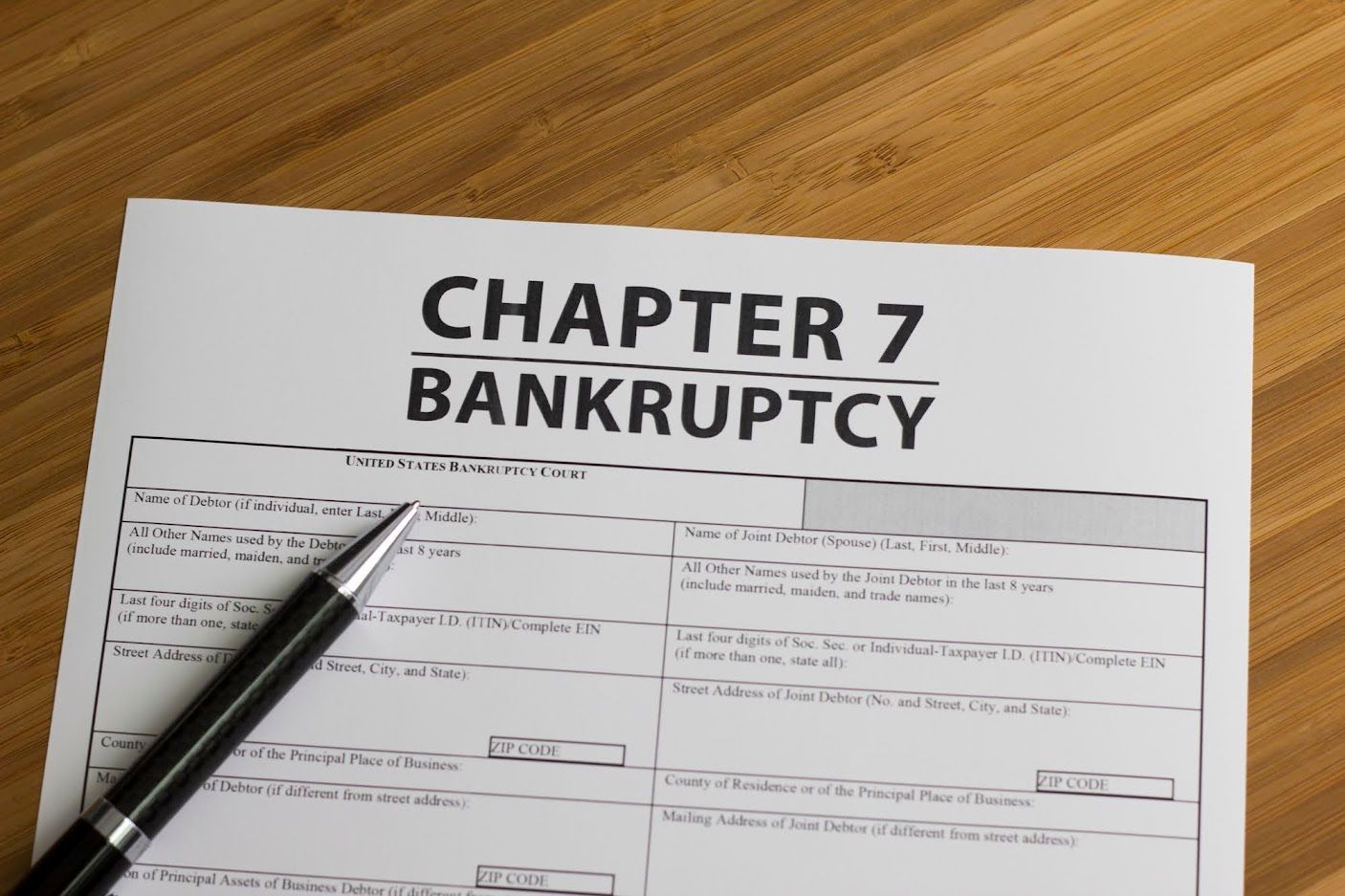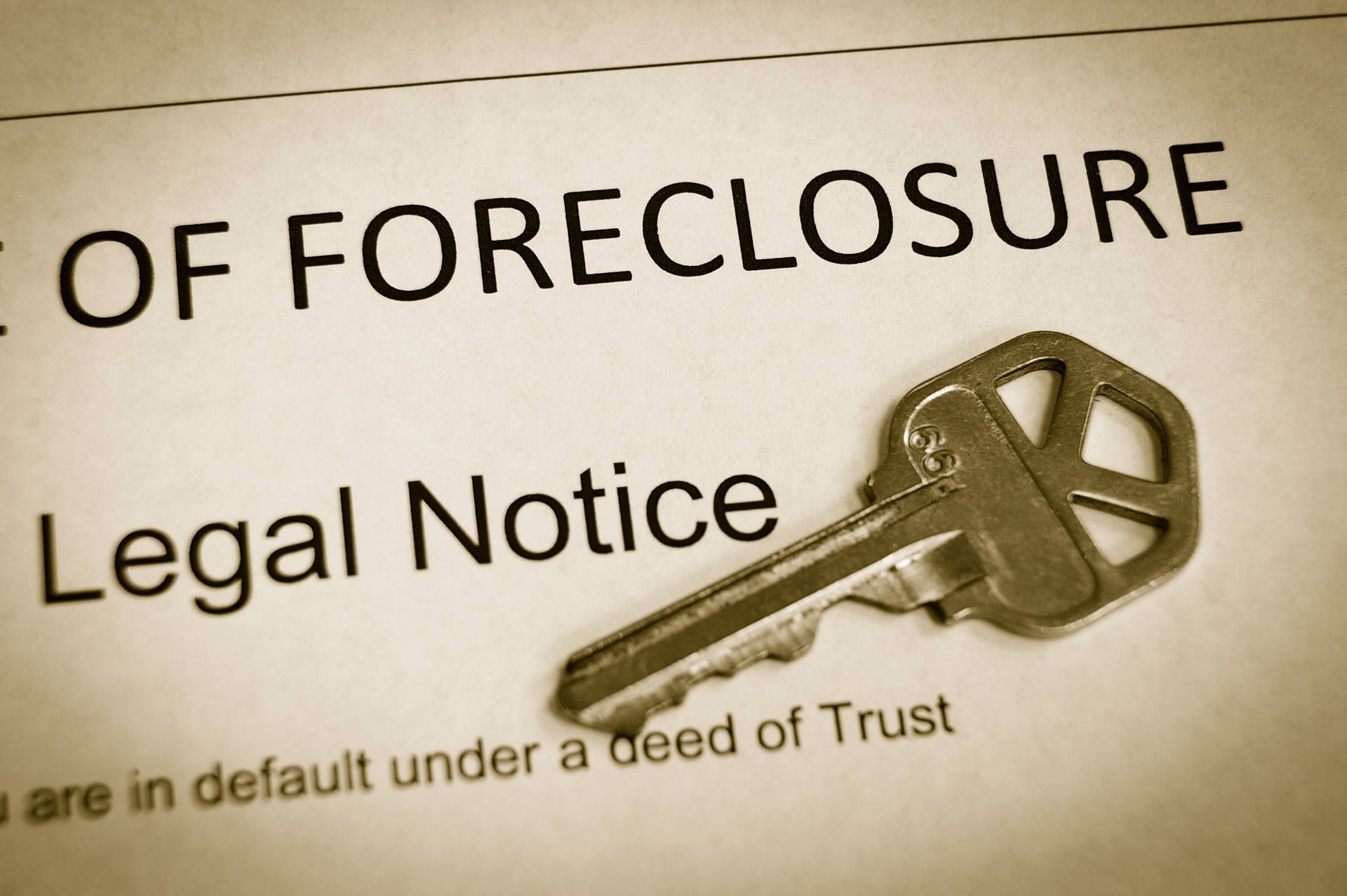
Same Day Telephone, Zoom or In-Person Meetings Available
Palm Beach County: (561) 689-6789
St. Lucie County: (772) 344-9090
Blog Layout
Facing Foreclosure? Discover Alternatives To Filing for Bankruptcy
November 20, 2023

When the threat of foreclosure looms, it's easy to feel like you're cornered with no way out. But don't let panic set in just yet – filing for bankruptcy isn't your only option. And for many people, it may not even be the best one.
While filing for bankruptcy can provide a temporary respite, it carries long-term consequences that can hinder your financial recovery. It can stay on your credit report for a long time, making it difficult to secure loans, buy a house, or even find employment.
Thankfully, there are other avenues to explore. This post will uncover a few alternatives to bankruptcy that could help you navigate through the stormy seas of foreclosure toward a future of financial stability.
Modifying your existing loan involves adjusting the terms of your mortgage to make payments more manageable for you.
The modification could be a reduction in the interest rate, an extension of the loan term, a change from a variable interest rate to a fixed one, or even a principal forbearance or reduction. This results in more manageable monthly payments, offering you a way to keep your home and get back on track financially.
Remember that not all lenders offer this option. It usually requires proving that a significant hardship caused your inability to keep to the original mortgage terms. But before agreeing to a loan modification, you need to understand the terms thoroughly.
A lower monthly payment can certainly make your situation more manageable in the short term. However, extending the life of your loan means you could end up paying more in interest over the long run.
Also, keep in mind that your lender isn't obligated to agree to a modification. But, they may consider it if they believe it's more beneficial than undertaking the costly and time-consuming foreclosure process.
Work with a lawyer who can negotiate on your behalf. A good lawyer understands the complexities involved and has experience with the various financial and legal aspects of foreclosure and loan modifications. Their expertise can help you navigate the process, ensuring you understand all the new agreement terms and that they align with your financial capabilities.
A short sale is when you sell your home for less than the amount you owe on your mortgage. While this may sound counterintuitive, it can provide a viable escape from foreclosure while minimizing the damage to your credit score.
The lender must agree to a short sale, and it's usually considered when the loss from the sale is less than the cost of foreclosure. This process can help you avoid the stigma and long-term credit damage associated with foreclosure.
Although you would need to vacate your home, it provides a more controlled exit strategy and often leaves you in a better financial position than if your home were foreclosed.
Your lawyer can review complex paperwork and ensure that the short sale agreement doesn't include unexpected terms that could harm you financially in the future. They can also navigate any legal issues that come up during the sale and protect your rights throughout the process.
A good lawyer can also negotiate with the lender to minimize or eliminate any deficiency balance you may owe after the sale. This can help you avoid a deficiency judgment when the lender sues you for any remaining balance after selling your home.
To understand these and other legal options available to navigate a looming foreclosure, Ozment Law is here to help. Our experienced attorneys work with individuals and families facing financial challenges, including bankruptcy, foreclosure, and other debt issues. So don't let the fear of foreclosure hold you back—reach out and get the support you need to move forward confidently!
While filing for bankruptcy can provide a temporary respite, it carries long-term consequences that can hinder your financial recovery. It can stay on your credit report for a long time, making it difficult to secure loans, buy a house, or even find employment.
Thankfully, there are other avenues to explore. This post will uncover a few alternatives to bankruptcy that could help you navigate through the stormy seas of foreclosure toward a future of financial stability.
Loan Modification
Modifying your existing loan involves adjusting the terms of your mortgage to make payments more manageable for you.
The modification could be a reduction in the interest rate, an extension of the loan term, a change from a variable interest rate to a fixed one, or even a principal forbearance or reduction. This results in more manageable monthly payments, offering you a way to keep your home and get back on track financially.
Remember that not all lenders offer this option. It usually requires proving that a significant hardship caused your inability to keep to the original mortgage terms. But before agreeing to a loan modification, you need to understand the terms thoroughly.
A lower monthly payment can certainly make your situation more manageable in the short term. However, extending the life of your loan means you could end up paying more in interest over the long run.
Also, keep in mind that your lender isn't obligated to agree to a modification. But, they may consider it if they believe it's more beneficial than undertaking the costly and time-consuming foreclosure process.
Work with a lawyer who can negotiate on your behalf. A good lawyer understands the complexities involved and has experience with the various financial and legal aspects of foreclosure and loan modifications. Their expertise can help you navigate the process, ensuring you understand all the new agreement terms and that they align with your financial capabilities.
Short Sale
A short sale is when you sell your home for less than the amount you owe on your mortgage. While this may sound counterintuitive, it can provide a viable escape from foreclosure while minimizing the damage to your credit score.
The lender must agree to a short sale, and it's usually considered when the loss from the sale is less than the cost of foreclosure. This process can help you avoid the stigma and long-term credit damage associated with foreclosure.
Although you would need to vacate your home, it provides a more controlled exit strategy and often leaves you in a better financial position than if your home were foreclosed.
Your lawyer can review complex paperwork and ensure that the short sale agreement doesn't include unexpected terms that could harm you financially in the future. They can also navigate any legal issues that come up during the sale and protect your rights throughout the process.
A good lawyer can also negotiate with the lender to minimize or eliminate any deficiency balance you may owe after the sale. This can help you avoid a deficiency judgment when the lender sues you for any remaining balance after selling your home.
To understand these and other legal options available to navigate a looming foreclosure, Ozment Law is here to help. Our experienced attorneys work with individuals and families facing financial challenges, including bankruptcy, foreclosure, and other debt issues. So don't let the fear of foreclosure hold you back—reach out and get the support you need to move forward confidently!
Quick Links
Contact Information
Address:
Palm Beach County: 2001 Palm Beach Lakes Blvd Suite 500 West Palm Beach, FL 33409

Content, including images, displayed on this website is protected by copyright laws. Downloading, republication, retransmission or reproduction of content on this website is strictly prohibited. Terms of Use
| Privacy Policy

